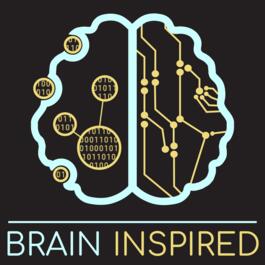
Support the show to get full episodes, full archive, and join the Discord community. Joe Monaco and Grace Hwang co-organized a recent workshop I participated in, the 2024 BRAIN NeuroAI Workshop. You may have heard of the BRAIN Initiative, but in case not, BRAIN is is huge funding effort across many agencies, one of which is the National Institutes of Health, where this recent workshop was held. The BRAIN Initiative began in 2013 under the Obama administration, with the goal to support developing technologies to help understand the human brain, so we can cure brain based diseases. BRAIN Initiative just became a decade old, with many successes like recent whole brain connectomes, and discovering the vast array of cell types. Now the question is how to move forward, and one area they are curious about, that perhaps has a lot of potential to support their mission, is the recent convergence of neuroscience and AI... or NeuroAI. The workshop was designed to explore how NeuroAI might contribute moving forward, and to hear from NeuroAI folks how they envision the field moving forward. You'll hear more about that in a moment. That's one reason I invited Grace and Joe on. Another reason is because they co-wrote a position paper a while back that is impressive as a synthesis of lots of cognitive sciences concepts, but also proposes a specific level of abstraction and scale in brain processes that may serve as a base layer for computation. The paper is called Neurodynamical Computing at the Information Boundaries, of Intelligent Systems, and you'll learn more about that in this episode. Joe's NIH page. Grace's NIH page. Twitter: Joe: @j_d_monaco Related papers Neurodynamical Computing at the Information Boundaries of Intelligent Systems. Cognitive swarming in complex environments with attractor dynamics and oscillatory computing. Spatial synchronization codes from coupled rate-phase neurons. Oscillators that sync and swarm. Mentioned A historical survey of algorithms and hardware architectures for neural-inspired and neuromorphic computing applications. Recalling Lashley and reconsolidating Hebb. BRAIN NeuroAI Workshop (Nov 12–13) NIH BRAIN NeuroAI Workshop Program Book NIH VideoCast – Day 1 Recording – BRAIN NeuroAI Workshop NIH VideoCast – Day 2 Recording – BRAIN NeuroAI Workshop Neuromorphic Principles in Biomedicine and Healthcare Workshop (Oct 21–22) NPBH 2024 BRAIN Investigators Meeting 2020 Symposium & Perspective Paper BRAIN 2020 Symposium on Dynamical Systems Neuroscience and Machine Learning (YouTube) Neurodynamical Computing at the Information Boundaries of Intelligent Systems | Cognitive Computation NSF/CIRC Community Infrastructure for Research in Computer and Information Science and Engineering (CIRC) | NSF - National Science Foundation THOR Neuromorphic Commons - Matrix: The UTSA AI Consortium for Human Well-Being Read the transcript. 0:00 - Intro 25:45 - NeuroAI Workshop - neuromorphics 33:31 - Neuromorphics and theory 49:19 - Reflections on the workshop 54:22 - Neurodynamical computing and information boundaries 1:01:04 - Perceptual control theory 1:08:56 - Digital twins and neural foundation models 1:14:02 - Base layer of computationSupport the show to get full episodes, full archive, and join the Discord community. Joe Monaco and Grace Hwang co-organized a recent workshop I participated in, the 2024 BRAIN NeuroAI Workshop. You may have heard of the BRAIN Initiative, but in case not, BRAIN is is huge funding effort across many agencies, one of which is the National Institutes of Health, where this recent workshop was held. The BRAIN Initiative began in 2013 under the Obama administration, with the goal to support developing technologies to help understand the human brain, so we can cure brain based diseases. BRAIN Initiative just became a decade old, with many successes like recent whole brain connectomes, and discovering the vast array of cell types. Now the question is how to move forward, and one area they are curious about, that perhaps has a lot of potential to support their mission, is the recent convergence of neuroscience and AI... or NeuroAI. The workshop was designed to explore how N
From "Brain Inspired"


Comments
Add comment Feedback